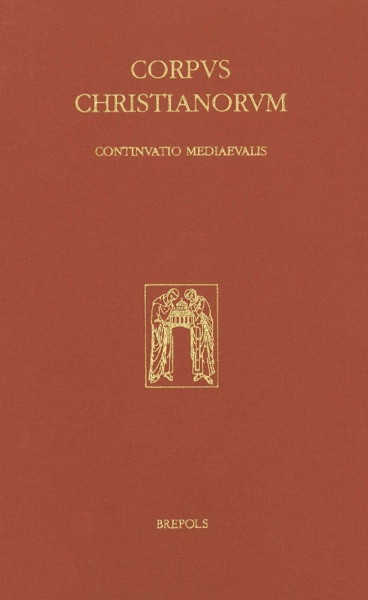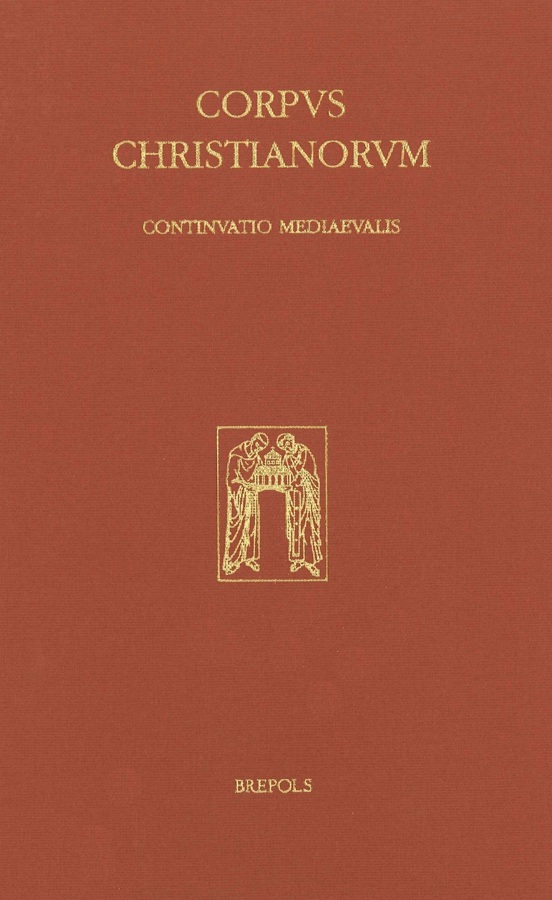
Anecdota rustica
Textus minores ad aedificationem pertinentes prout in codicibus saec. VIII-X asseruati sunt
Javier Soage (ed)
- Pages: xxiv + 285 p.
- Size:155 x 245 mm
- Language(s):Latin
- Publication Year:2022
- € 205,00 EXCL. VAT RETAIL PRICE
- ISBN: 978-2-503-59912-0
- Hardback
- Available
“Er macht hier nicht nur fünf bisher weitgehend unbekannte Texte zugänglich, welche für Philologen, Historiker und Theologen in unterschiedlicher Hinsicht von Interesse sind, er hat außerdem die jeweiligen überlieferungsgeschichtlichen Fundamente zu großen Teilen selbst gelegt, da auf dem Gebiet nicht allzu viele Vorarbeiten vorhanden waren.” (Lukas J. Dorfbauer, in Mittellateinisches Jahrbuch, 58/1, 2023, p. 157)
“In the best of Corpus Christianorum traditions, J. S. delivers a useful set of editions of texts which surely deserve more attention than they have received thus far. His approach will hopefully inspire other scholars to investigate more (interrelated groups of) anonymous texts in “families” of early medieval manuscripts” (Carine Van Rhijn, in Revue d’Histoire ecclésiastique, 118/3-4, 2023, p. 829)
« À la frontière entre l’antiquité tardive et le moyen âge, ces cinq opuscules éclairent d’un jour plus sur les temps carolingiens en mettant en évidence une littérature didactique, a la fois élémentaire, édifiante et religieuse, dont la transmission est souvent protéiforme. La tâche de l’éditeur de ces textes est intégrante, mais elle est très heureusement aboutie. » (P.-M. Bogaert, dans la Revue Bénedictine, 2, 2022, p. 408)
“En suma, la Anecdota rustica que pone en nuestras manos Javier Soage resultauna valiosa incorporación a la Continuatio Mediaevalis del Corpus Christianorum. Sin duda, la esmerada edición de cada obra y los completos estudios previos queacompañan a cada una de ellas podrán contribuir a que la comunidad científicasiga ahondando en el estudio de esta clase de textos.” (Carlos Prieto Espinosa, in Euphrosyne. Journal for Classical Philology, 51, 2023, p. 467)
Javier Soage (1991, Spain) carries out research in Latin literature from the Middle Ages (PhD 2017, Univ. of Salamanca) and the Early Modern Period (2016-2020, Trier; 2021 Trier, Barcelona). His main lines of research deal with dubia, spuria and anonymous texts of didactical and homiletic nature. Focus is put on critical edition, apochryphal motives and miscellaneous codices.
How did the least educated rows of the clergy get in touch with basic and more subtle religious teachings? Access to literacy was not the rule in the Early Middle Ages, but rather the exception. However, even the lowest rows of the Church were expected to be able to take care of their parishes. Therefore, the clergy was expected to be provided a certain knowledge. Oral transmission might have played the most important role in the formation of the lowest clergy. Still, several compositions have survived which might have also served this aim. These are rather simple, hardly original texts with friendly displays and oversimplified approaches to central matters of the Christian faith. Most of such compositions do not reach the highest standards of the time – nor do they attempt to do so. Yet, they are not mere personal notes for private use. They were surely meant to be circulated and to last – as they apparently did. This volume collects some of these texts, which appear to be related with one another in different ways. The collection, however, is not and could not be intended to be complete.





